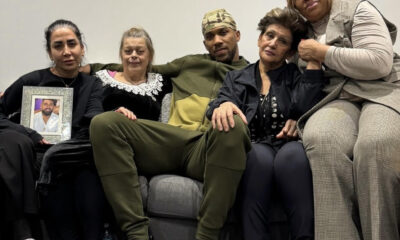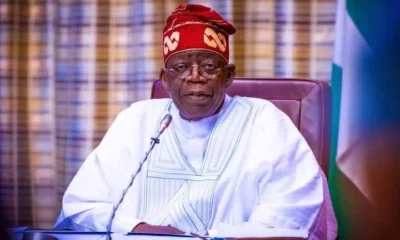President Bola Tinubu has ordered a manhunt for the terrorists responsible for a deadly attack on communities in Niger State that left more than 40 people dead and many others abducted.
In a statement on Sunday personally signed by him, the President said he had directed the Minister of Defence, the Chief of Defence Staff, the Service Chiefs, the Inspector-General of Police, and the Director-General of the Department of State Services to track down the perpetrators of the Kasuwan Daji attack and ensure they are brought to justice.
“These terrorists have tested the resolve of our country and its people. They must face the full consequences of their criminal actions,” Tinubu said.
“No matter who they are or what their intent is, they must be hunted down. In addition, those who aid, abet or enable them will also be brought to justice,” he added.
The President further ordered the immediate rescue of all abducted victims and directed that security operations around vulnerable communities, particularly those near forests, be intensified.
“These times demand our humanity. We must stand together as one people and confront these monsters in unison. United, we can and must defeat them and deny them any sanctuary. We must reclaim peace for these attacked communities,” Tinubu said, praying for the repose of the victims’ souls.
The presidential directive followed coordinated attacks by suspected bandits on Saturday afternoon in Agwara and Borgu local government areas of Niger State.
According to the Niger State Police Command, the attackers are believed to have emerged from the National Park forest along Kabe District before storming Kasuwan Daji in Demo Village via Kabe.
Police spokesman Wasiu Abiodun said the attack began around 4:30 pm and lasted for several hours.
“At about 4:30 pm on Saturday, suspected bandits invaded Kasuwan Daji, killed over 30 persons, burnt the market, looted shops and carted away food items,” Abiodun said.
He added that the attackers operated with little resistance due to the remoteness of the area, noting that security forces were later deployed.
“A joint security team has visited the scene, and efforts are ongoing to rescue the abducted victims. Further developments will be communicated,” he said.
While the police put the death toll at over 30, residents and community leaders said the casualties were significantly higher.
The Director of Communications of the Catholic Diocese of Kontagora, Rev. Fr Stephen Kabirat, said no fewer than 40 people were killed during the raid.
“The terrorists have killed over 40 persons and taken some into captivity,” Kabirat said.
“Our parish priest narrowly escaped abduction when the terrorists visited our Mission House three days ago. They destroyed some religious items, carted away two motorbikes and cash worth over two hundred thousand naira.”
Kabirat added that villagers, including women and children, were among those abducted.
A community source in Agwara Local Government Area, who requested anonymity for security reasons, said the attacks extended beyond Kasuwan Daji.
“The terrorists attacked communities in Agwara and Borgu, killing no fewer than 42 persons and abducting an unconfirmed number of people, including children,” the source said.
“They have been attacking villages in Agwara for the past week without any opposition. On Saturday alone, they burnt the market at Kasuwan Daji and abducted many people, including students of St Mary’s Private Catholic Primary and Secondary Schools, Papiri.”
The source said 37 people were killed in Kasuwan Daji near Papiri, while another five were killed in Kaima village.
According to the source, fear has gripped communities across the area, with residents fleeing to neighbouring villages and across the river for safety.
“This is a serious crisis. The government and security agencies should come to our aid. People are living in fear, and many communities are now deserted,” the source added.
The area has witnessed repeated attacks in recent months. In November 2025, terrorists raided St Mary’s Catholic Primary and Secondary School in Papiri, abducting 315 pupils, students and teachers. They were later released after about one month following federal government intervention.
Meanwhile, Ogun State Governor and Chairman of the Southern Governors’ Forum, Dapo Abiodun, condemned the killings, describing them as callous, senseless, and a crime against humanity.
In a statement issued on Sunday in Abeokuta, Abiodun expressed condolences to Niger State Governor Mohammed Umaru Bago and the people of the state.
“I commiserate with the government and people of Niger State over the dastardly attacks by terrorists that left 42 people dead and many others abducted,” he said.
“The cowardly onslaught on innocent citizens going about their lawful business represents a stain on our nation’s conscience. Such brutality must never be allowed to happen again.”
Abiodun urged security agencies to deploy all available resources to track down and prosecute the perpetrators, stressing that the attackers must be “completely crushed” to prevent further bloodshed.
He also prayed for the repose of the souls of the victims and for strength for their families.


 BIG STORY4 days ago
BIG STORY4 days ago
 BIG STORY1 day ago
BIG STORY1 day ago
 Uncategorized5 days ago
Uncategorized5 days ago
 BIG STORY4 days ago
BIG STORY4 days ago
 BIG STORY5 days ago
BIG STORY5 days ago
 BIG STORY8 hours ago
BIG STORY8 hours ago
 BIG STORY1 day ago
BIG STORY1 day ago
 BIG STORY3 days ago
BIG STORY3 days ago






















